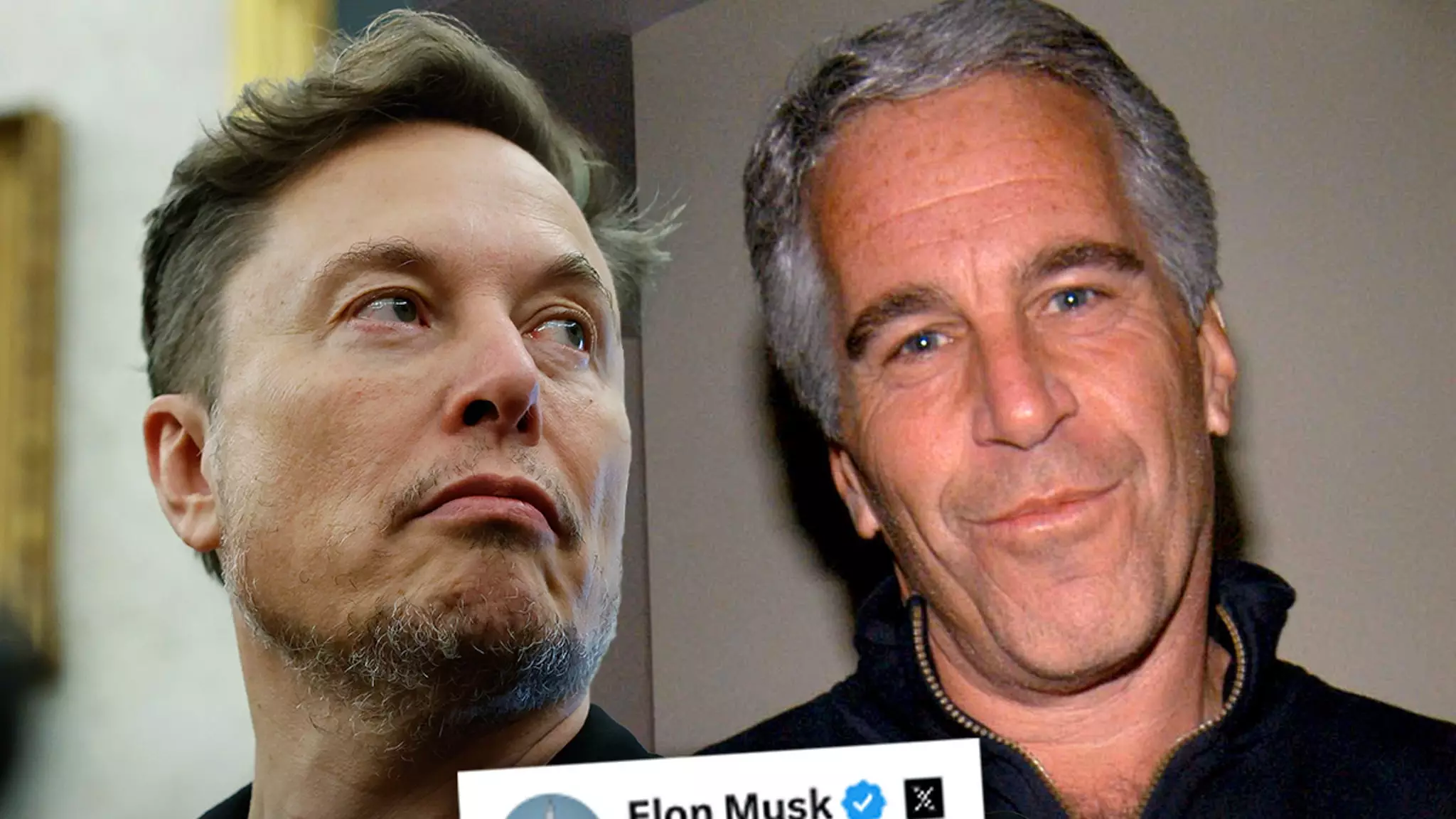In an era where social media often functions as a double-edged sword, Elon Musk exemplifies how one individual’s voice can ripple through the global consciousness and challenge entrenched authorities. Musk’s recent series of outspoken tweets questioning official reports on Jeffrey Epstein exemplifies the potent influence technology magnates wield in contemporary discourse. Unlike traditional media, which often operate within established narratives, Musk leverages his platform to question, to doubt, and to provoke. This behaviour underscores a fundamental shift: the rise of individual authority capable of disturbing the supposed sanctity of government findings and mainstream journalism alike.
While some dismiss Musk’s comments as provocative or careless, their significance lies in their capacity to ignite debate about transparency, accountability, and the integrity of legal processes. Musk’s position as the world’s wealthiest individual affords him a platform that few can rival, enabling him to expose potential biases or flaws in official accounts. However, this amplification also invites scrutiny—both of Musk’s motives and of his role in shaping the public’s perception of complex criminal cases. His tweets, dripping with skepticism, risk blurring the line between genuine inquiry and conspiracy, but they undeniably compel a broader audience to reassess the narratives we’ve been presented.
Questioning Authority and the Limitations of Official Reports
Musk’s relentless questioning of the Jeffrey Epstein case goes beyond mere controversy; it highlights a profound distrust in governmental institutions to serve justice objectively. The recent memo denying Epstein had any blackmail material or client list—corresponding with his death being classified as a suicide—has not quelled doubts among the public. Instead, Musk’s comments and those of other influential voices serve as a mirror to the widespread suspicion about how truth is vetted and disseminated.
The fact that Epstein’s death has been officially marked as a suicide, despite conspiracy theories suggesting otherwise, reveals the deep fissures in public trust. Musk’s willingness to polemicize on this issue, particularly after confirming Epstein’s possible connections with high-profile individuals, embodies a challenge to the quiet acceptance of official narratives. His provocative statement—”What’s the time? No-one-has-been-arrested-o’clock”—serves as a pointed critique of perceived inaction and lack of accountability.
Nevertheless, this open skepticism invites a critical examination: are Musk’s remarks a sincere pursuit of transparency, or are they emblematic of a broader tendency among elites to manipulate narratives for personal or political ends? Musk’s own history of eccentric and controversial statements clouds his motivations, prompting us to critically analyze whether his accusations serve the cause of truth or merely feed alternative narratives that can dangerously distort public understanding.
The Conspiracy Landscape: Why Public Distrust Persists
The persistent conspiracy theories surrounding Epstein’s death and his connections are symptomatic of a pervasive distrust in the corridors of power. Despite the official reiteration that Epstein died by suicide and that jail video confirms the lack of foul play, many remain unconvinced. Prominent figures, including former FBI officials and political personalities, have voiced doubts—fueling a shadowy view of high-level complicity.
Musk’s repeated challenges—particularly his insinuation that Epstein’s activities are intentionally concealed—serve to perpetuate the allure of hidden truths lurking beneath declassified documents or media reports. The tension rests in the uncomfortable reality that vast, powerful institutions have historically withheld or suppressed information, fostering speculation and conspiracy theories. When authorities release minimal or heavily redacted evidence, it only intensifies public suspicion.
Moreover, the intersection of Epstein’s case with influential figures, including politicians, celebrities, and business magnates, complicates the narrative further. Musk’s provocative stance invites a broader discourse: are we witnessing a struggle between transparency and concealment, or are these debates merely symptomatic of a society hungry for sensational truths? The danger lies in allowing skepticism to devolve into cynicism, eroding trust in institutions that are supposed to uphold justice.
The Role of the Digital Age in Critical Engagement
Musk’s boldness exemplifies how social media empowers individuals—not just to express opinions but to influence perceptions on issues of national and international importance. His willingness to challenge official accounts demonstrates the disruptive power of digital platforms, which amplify voices capable of reshaping narratives that once seemed solidified by governmental authority.
This democratization of information has its risks. Without rigorous fact-checking, misinformation can flourish, breeding confusion, paranoia, and societal fragmentation. Musk’s comments, though provocative, can contribute to the fragmentation of trust if they are viewed in isolation or taken as unchallenged truths. Yet, his approach also exemplifies the necessity for critical engagement in an age where truth is often contested and where official narratives may sometimes serve vested interests rather than the public good.
In this landscape, skeptics and advocates must balance inquisition with discernment. Musk’s actions underscore the importance of questioning authority, but they also remind us that skepticism must be anchored in responsible inquiry rather than sensationalism. As society navigates the complexities of truth, the digital arena remains both a battleground and a sanctuary for accountability.
—
In a time when walls around secretive power are being systematically challenged, Elon Musk’s outspoken stance on the Epstein case exemplifies a broader cultural shift: an urgent demand for honesty, transparency, and integrity. Whether Musk is a hero in the pursuit of truth or an instigator of chaos, his influence forces us to confront uncomfortable questions about justice, trust, and the unseen machinations of those in power.

Leave a Reply